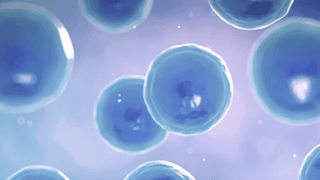Keeping patients at the center of all it does is why City of Hope is lauded year after year for excellence in care, treatment, research and outcomes. City of Hope has been ranked for the 15th year in a row by the Center for International Blood & Marrow Transplant Research (CIBMTR) for providing exceptional care and strong clinical outcomes for patients who received bone or stem cell transplants.
City of Hope is the only cancer center nationwide to exceed BMT outcome expectations for patients for 15 consecutive years. It is also the only transplant center in California whose survival rate was better than expected during the evaluation years represented in CIBMTR’s report. In analyzing outcomes for transplant patients, CIBMTR examines the type of patients that a program admits for transplantation and how advanced each person’s disease is. The organization then establishes outcome expectations, or how likely it is that a patient can be cured based on those factors.
“It is the commitment of our physicians, nurses and other clinical staff that brings us this success and recognition every year,” said Stephen Forman, M.D., who helped start the BMT program more than 40 years ago and today leads the Hematologic Malignancies Research Institute and is a professor in the Department of Hematology & Hematopoietic Cell Transplantation at City of Hope. “It is a remarkable achievement, especially considering that our patients often have more advanced cases of blood cancer when they come to us than at many other programs in the country.”
City of Hope’s laboratory and clinical researchers have led the way in making transplants more effective and safer, leading to improved outcomes and longer life expectancy. City of Hope has the most robust program in California. In 2019, it performed nearly 800 transplants. It also marked a significant milestone in performing its 15,000th BMT since its program began 44 years ago.
Unyielding Standard Of Care
The progress of City of Hope's research and its unyielding standard of care play a significant role in the BMT program’s success. Advances such as haploidentical (half-match) transplants are now possible, and targeted therapies and immunotherapies are showing great promise in the treatment of blood cancers. There are also more ways to treat — even avoid — the onset of graft-versus-host disease post-transplant.
“It really is a whole new world we’ve seen evolve in the science of BMT, and City of Hope has been at the forefront of those advances,” said Eileen Smith, M.D., the Francis & Kathleen McNamara Distinguished Chair in Hematology and Hematopoietic Cell Transplantation. “But that science, coupled with City of Hope’s unique culture, is our winning combination, the ‘secret sauce,’ of our success. It’s something that can’t be duplicated elsewhere. A BMT care team of more than 300 people comes to work each day committed to giving their best for our patients, knowing that in this special place named for hope, they are valued for the essential contributions they make in treating patients today and for advancing research to accelerate the impact we can make in improving the standard of care for our patients tomorrow.”
CIBMTR is a research collaboration between the national marrow donor program Be The Match and the Medical College of Wisconsin. CIBMTR, which started collecting data on BMT outcomes 15 years ago, releases reports annually, compiled as part of their operation of the Stem Cell Therapeutic Outcomes Database. The center reviews clinical data from all transplant centers in the United States, and this recent report analyzed data on transplants using both related and unrelated donors in U.S.
